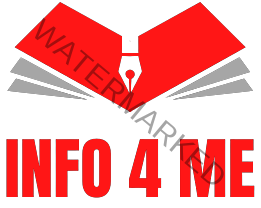I know a good idea when I see one. So should you!!!
Dump those time-tested ideas you’re sending off to editors every other day, and find ideas that will get you the assignment each time, every time.
How do you know whether your brilliant idea will strike a chord and get you the assignment or land your neatly crafted query in the slush pile? Use the following checklist to find out whether you have a winner or another stale idea that the editor’s been rejecting since she set foot in her editorial office.
Here are some of the questions an editor will ask of each article idea:
What’s new?
If you’re writing for a pregnancy magazine, chances are the editor has already covered topics such as exercises and diet regulation. What are you going to say that stands apart? Can you provide a unique spin to these topics? If yes, you’re in the door.

Think different. Instead of talking about diet issues, list twenty food items that are to be avoided throughout pregnancy. Be innovative. Come up with topics you’ve never seen featured before. Are there any negative feelings, unresolved issues, or body changes that might not be so great that would-be mothers need to know more about?
Will the reader connect?
You may have the most innovative, brilliant, and mind-blowing idea. Yet, it may lead to rejection if you’re targeting the wrong market. Send an idea about getting over broken live-in relationships to a magazine in India, and don’t expect anything but rejection. But send it over to a singles magazine in England, and you may have a chance. The first thing the editor wants to know when she lays eyes on your query is whether her readers will value your subject matter. If her readers won’t take to it, she won’t either.
Will it keep my reader captivated?
Picture this: I come home from a long day at work. While I relax on my couch, I could flick channels on the remote or pick up the magazine and leaf through the articles. My eyes rest on your piece. Is your piece intriguing and interesting enough to make me stay with you, or would I prefer to watch what’s on TV?
It’s every editor’s fear—that her loyal reader will ditch reading the magazine for something more interesting. And with the number of entertainment avenues available today, that won’t be a problem. In order to keep the reader (and the editor) keen on your idea, you’ve got to suggest something that will keep them wanting more. Does your idea have that virtue?
Is there a surprise element?
The more unexpected, the better. Readers love surprises. That’s why editors do too. Surprise doesn’t always have to mean an anti-climax or a situation of complete irony. Surprises can be subtle, yet effective. Add a little-known statistic or a funny anecdote in your article. Go out of your way to find an amazing fact or figure. Don’t go out of context though. There’s nothing worse than getting sidetracked from the theme of the article.
What’s in it for me?

What does the reader take home with her once she’s closed the magazine and gone her own way? Has she learned a lesson? Will she take with her an experience? Will she be a better mother, daughter, wife, or friend because of it? In every article that you write, this question should have the utmost importance.
What can you give to your reader?
Making an impact is very important. The article idea that won’t sell is the one in which the editor will read through your query and not have any unanswered questions. You have to give your reader that something extra. Something she can think about on her way to work. Something she’ll remember as she rests her head on the pillow and falls asleep.
Regardless of the kind of writer you are, your ideas are what make you a success. A good editor can fix the holes in your writing, but cannot flesh out your idea. That is something only you can do.
Editors love writers who consistently come up with fresh and innovative ideas. Being swamped with a dozen queries every day, most of them containing the same old angles, they’re always on the lookout for writers who can provide a unique twist.





GIPHY App Key not set. Please check settings